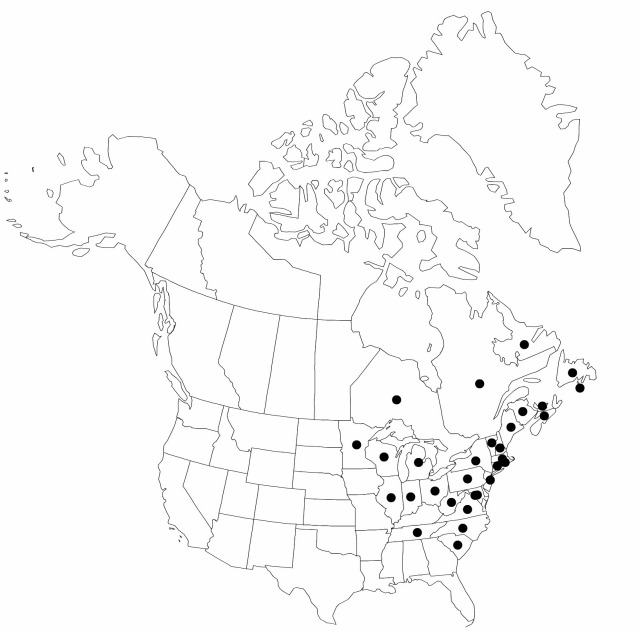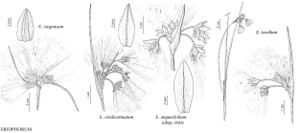Eriophorum virginicum
Sp. Pl. 1: 52. 1753.
Plants colonial from long-creeping rhizomes. Culms 40–120 cm × 0.6–1 mm, smooth or scabrous distally. Leaves: blades flat, trigonous in cross-section distally, to 30 cm × 1.5–4 mm; distal leaf-blade much longer than sheath. Inflorescences: blade-bearing involucral-bracts 2–5, sometimes brown-tinged proximally, leaflike, longest 4–12 cm. Spikelets 2–10, usually in dense head, ovoid, 6–10 mm in flower, 10–20 mm in fruit; peduncles 2–10 (–20) mm, scabrid; scales brown, often with green center, ovateoblong, 4–5 mm, obscurely ribbed or with 3–5 equally prominent ribs, apex obtuse. Flowers: perianth bristles usually 10 or more, brown at least at base, rarely entirely white, 12–18 mm, smooth; anthers 0.7–1.5 mm. Achenes dark-brown to black, narrowly obovoid or ellipsoid, 2.5–4 mm.
Phenology: Fruiting mid summer–early fall.
Habitat: Bogs, meadows
Elevation: 0–1000 m
Distribution

St. Pierre and Miquelon, N.B., Nfld. and Labr., N.S., Ont., P.E.I., Que., Conn., D.C., Ill., Ind., Maine, Md., Mass., Mich., Minn., N.H., N.J., N.Y., N.C., Ohio, Pa., R.I., S.C., Tenn., Vt., Va., W.Va., Wis.
Discussion
Selected References
None.
Lower Taxa
"shortened" is not a number."longest" is not a number.
